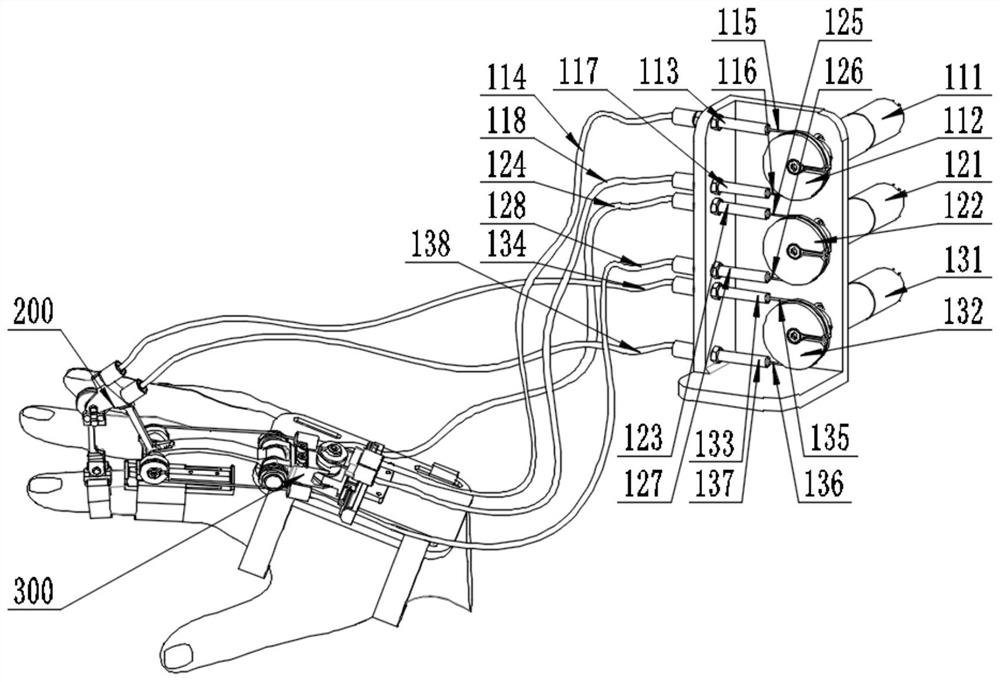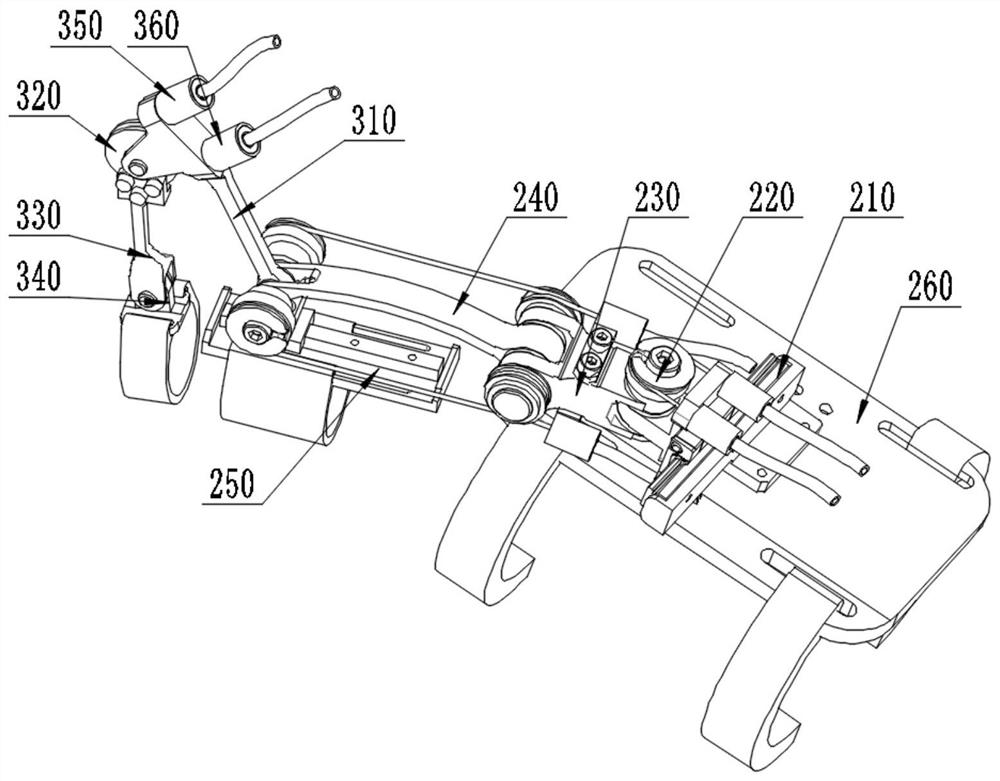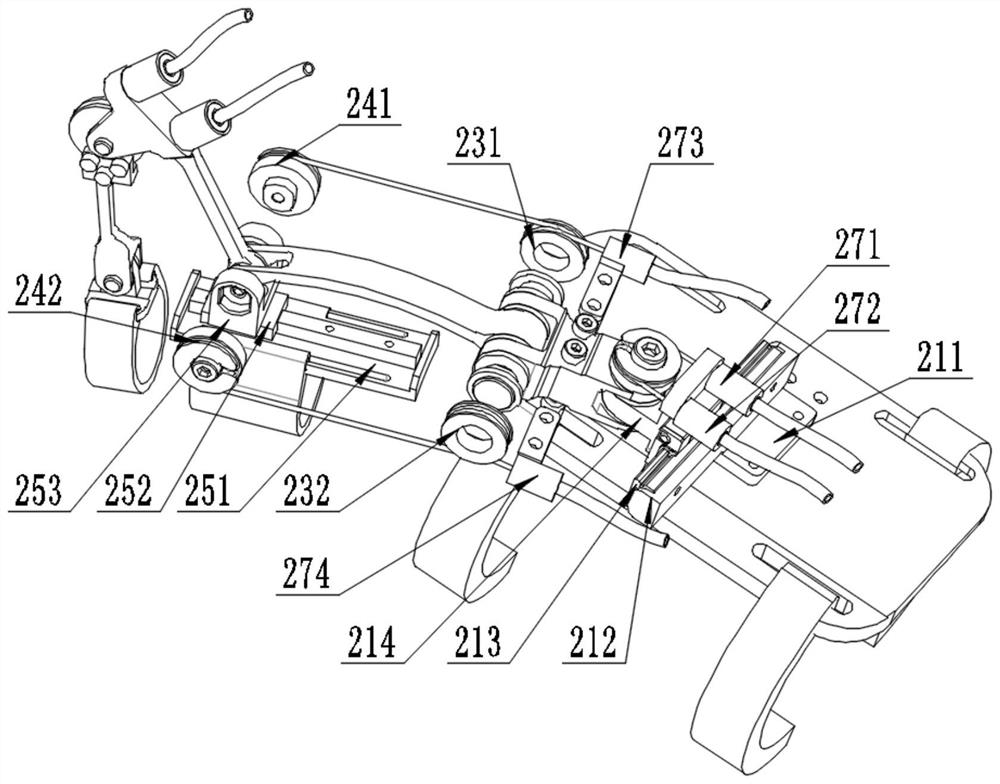Exoskeleton robot for finger rehabilitation with adduction, abduction, flexion and extension
An exoskeleton robot, finger technology, applied in passive exercise equipment, physical therapy and other directions, can solve the problem of unable to achieve self-adaptive alignment of human-machine joints, and achieve the effect of self-adaptive alignment, elimination of force, and elimination of mechanical stress
- Summary
- Abstract
- Description
- Claims
- Application Information
AI Technical Summary
Problems solved by technology
Method used
Image
Examples
Embodiment Construction
[0050] Preferred embodiments of the present invention are described below with reference to the accompanying drawings. Those skilled in the art should understand that these embodiments are only used to explain the technical principle of the present invention, and are not intended to limit the protection scope of the present invention.
[0051] The invention provides a finger rehabilitation exoskeleton robot with adduction, abduction, flexion and extension, including a drive assembly, a metacarpophalangeal joint transmission assembly, and a proximal joint transmission assembly; the drive assembly includes a first drive assembly carried by a motor support seat , the second drive assembly and the third drive assembly, the first drive assembly, the second drive assembly and the third drive assembly are set independently; the metacarpophalangeal joint transmission assembly includes a palm fixed base, a first translation assembly arranged on the palm fixed base , internal and externa...
PUM
 Login to View More
Login to View More Abstract
Description
Claims
Application Information
 Login to View More
Login to View More - R&D
- Intellectual Property
- Life Sciences
- Materials
- Tech Scout
- Unparalleled Data Quality
- Higher Quality Content
- 60% Fewer Hallucinations
Browse by: Latest US Patents, China's latest patents, Technical Efficacy Thesaurus, Application Domain, Technology Topic, Popular Technical Reports.
© 2025 PatSnap. All rights reserved.Legal|Privacy policy|Modern Slavery Act Transparency Statement|Sitemap|About US| Contact US: help@patsnap.com



